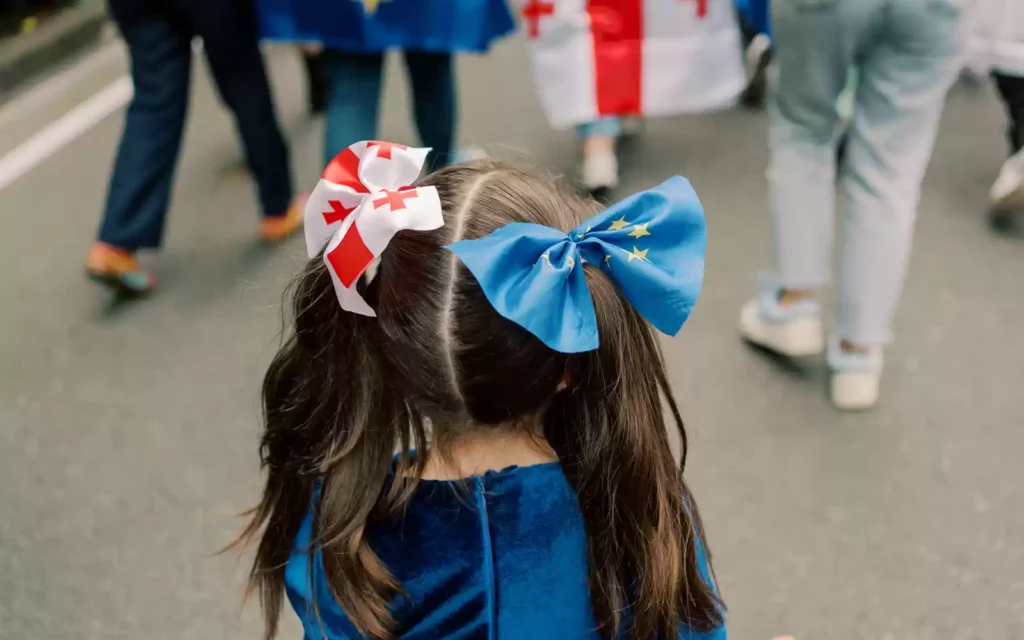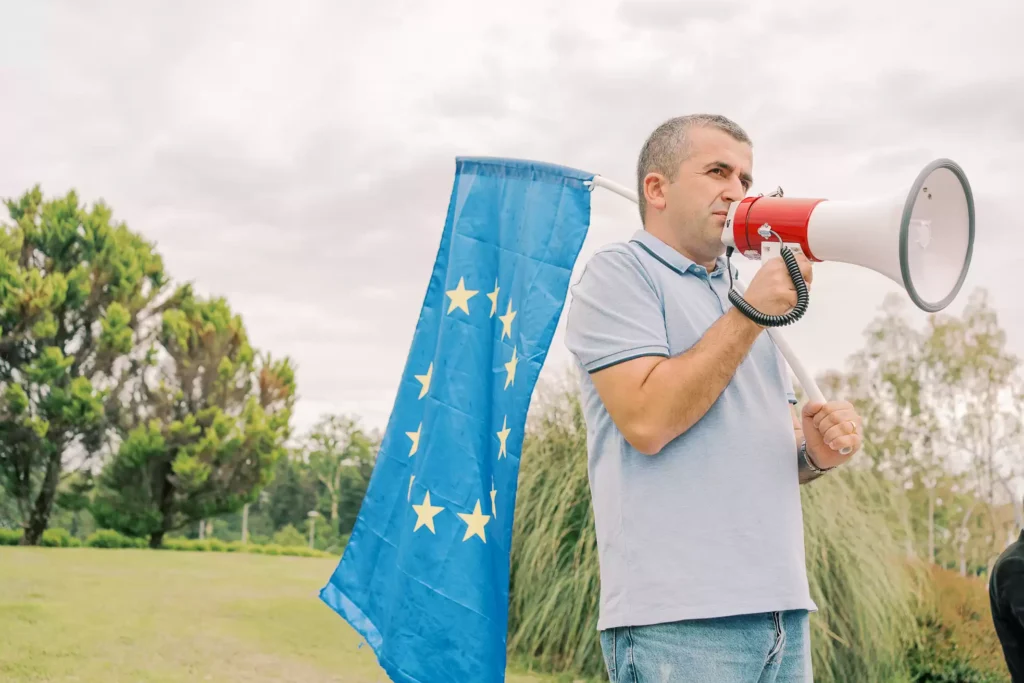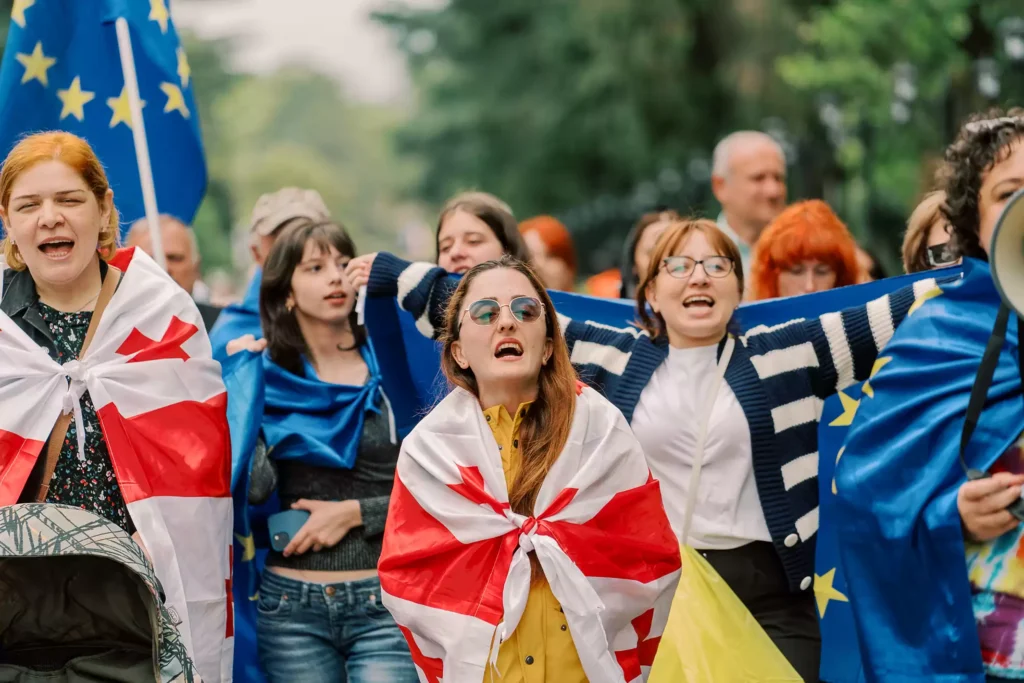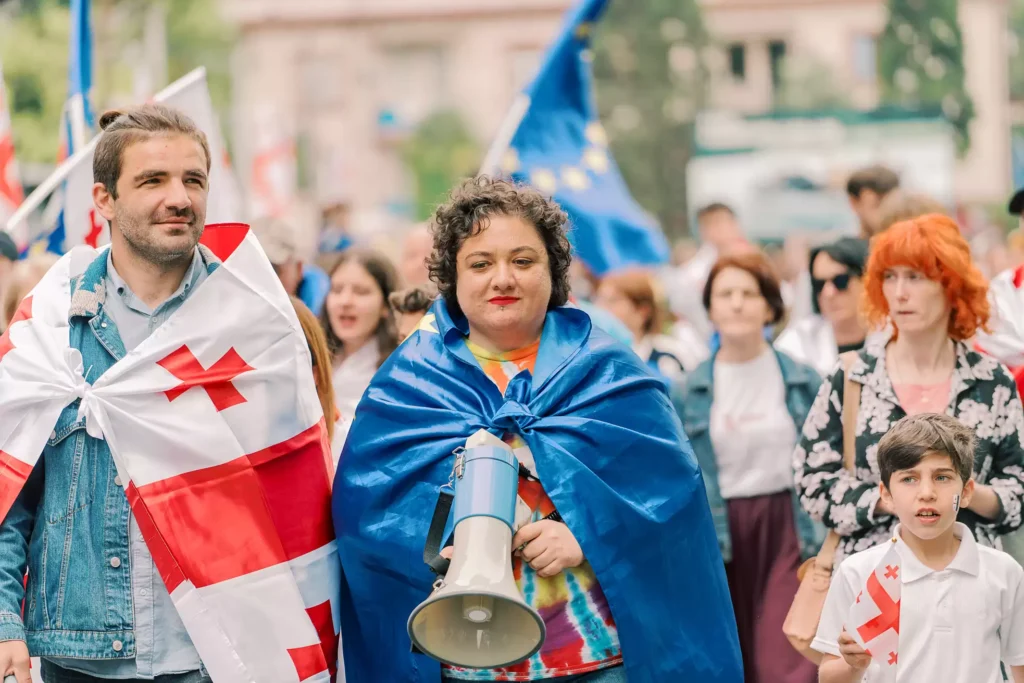
At the end of May, the Georgian parliament overruled a veto by President Salome Zurabishvili and passed the “Foreign Influence Transparency Law.” Critics describe the law as “Russian,” saying it severely restricts freedom of expression and amounts to sabotage of Georgia’s EU membership application.
According to the law, all organizations that receive at least 20 percent of their funding from abroad must register as “representatives of the interests of a foreign state” or face fines.
The ruling Georgian Dream party stated that the new law was necessary to curb potential attempts at foreign influence in domestic politics. However, critics, including the Venice Commission, believe it is an undemocratic document that threatens Georgia’s prospects for European integration.
During the debate and adoption of the law, mass protests took place in the capital, Tbilisi, and other major Georgian cities under the slogan “Yes to Europe. No to the Russian law.” Demonstrators have called the law “Russian” because it is similar to measures the Kremlin has used to silence critical organizations, media outlets, and civil society activists. They fear mass arrests of protesters and physical violence against them.

Democratic challenges
Zugdidi is one of the cities in western Georgia where residents regularly gather for protests. The city lies on the border with the region of Abkhazia, which has been occupied by Russia for over 30 years. For Georgians, Abkhazia is an integral part of Georgia, which is locked in a frozen conflict, while for Russia it is a neighboring people’s republic and a sphere of influence in the Caucasus. Therefore, the protests on the border between the two regions are particularly significant, as they literally demonstrate the clash of two geopolitical realities—the pro-European and the pro-Russian.
Regular rallies here are organized by the Civic Solidarity Foundation, which was established two years ago to help the Ukrainian city of Pokrovsk, Zugdidi’s twin city. Since the beginning of the large-scale Russian invasion, the city has hosted many refugees from Ukraine. Today, only a few remain. Most have returned to their homeland or settled in other countries.
Archil Todua, head of the Zugdidi office of Transparency International-Georgia, says that by overcoming the veto, the government has definitively abandoned democracy and that the “Russian law” that the Georgian parliament is attempting to legalize is aimed at eliminating critical, free thought in the country. “This applies not only to non-governmental organizations and the media,” Archil emphasizes, “but generally to anyone who might express criticism of the government in the future. Ultimately, it’s about establishing an authoritarian ‘Russian’ regime in the country that will make Georgia’s European integration impossible and endanger the country’s independence. The government’s efforts are one thing, but much more important is the Georgian people, the vast majority of whom stubbornly resist the government’s efforts. I am sure that the Georgian people will be the winners in this fight, not the government, which is willing to hand the country over to Russia in order to stay in power,” Archil says.

A few days before the law came into effect, another co-founder of the Civic Solidarity Foundation, activist Tsabunya Vartagava, was on a study trip to the USA. “I came back with a bunch of new ideas, and exactly two days later, the ‘Russian Law’ was initiated,” she says. “All the resources I could have used to change my environment for the better were used for protests. I never considered giving up for a second because I had expected this. When the president’s veto was overridden, we held a rally in Zugdidi. I saw the disappointed faces of my friends. Some even cried. They weren’t tears of disappointment, they were tears of anger. After a month and a half of continuous protests, what they had all fought for was gone in an instant. I addressed each of them and told them that everything had gone according to plan and now the main battle would begin. We have a difficult road ahead of us until the elections in October and an even more difficult election campaign. In my opinion, the Russian regime will not want to allow the elections, but everything will turn out well in the end.”

For now, Tsabunya’s only plan is to persevere and fight to the end, communicating with people via social media or in person, and explaining why they should go to the polls and absolutely vote for a political party other than Georgian Dream.
In addition to sanctions, Tsabunya believes it’s important to fill the information vacuum. Even in the smallest villages, people need to know the benefits of closer ties with the European Union and what the country could lose if it deviates from this path.
“Every second spent at a demonstration is history being made,” she says. “When I’m at a rally, I usually have a loudspeaker in my hand and never speak alone. I simply look at all the demonstrators and promise myself that we will definitely see this through. The memory of the street dogs who spent the night with us during the nightly protests will always remain. How my friends were arrested in Tbilisi and Zugdidi. How soldiers waved to us as we passed them on Georgian Independence Day. How the drivers on the blocked roads supported us instead of being angry. I have particularly emotional memories of the speech given by my friend, a refugee from Abkhazia who has done a lot of good for the development of young people in the region. I still remember how she stepped out onto the street with shaking hands and a trembling voice, demanding an answer to the question of why our future was being taken away from us. I held a loudspeaker in my hand and wore large glasses. Tears streamed down my face. After the speech, we marched off. I waited until everyone had left, and then took my glasses to wipe away my tears.”
